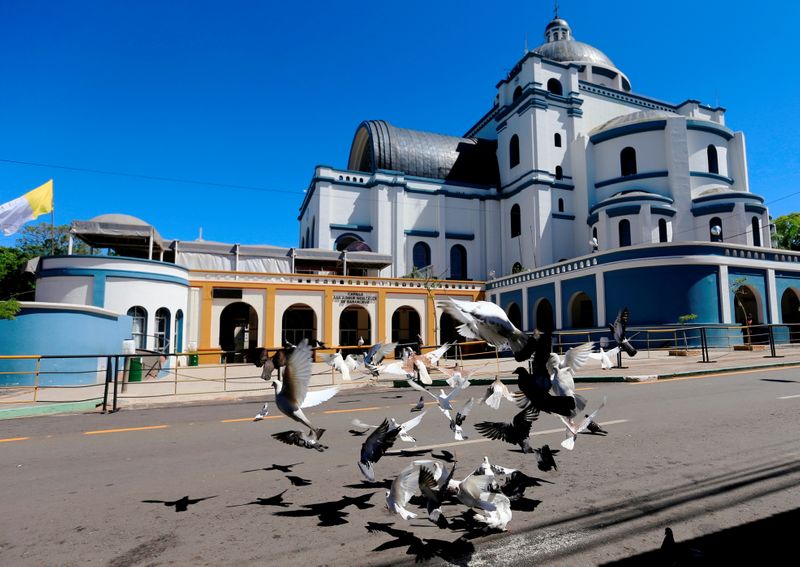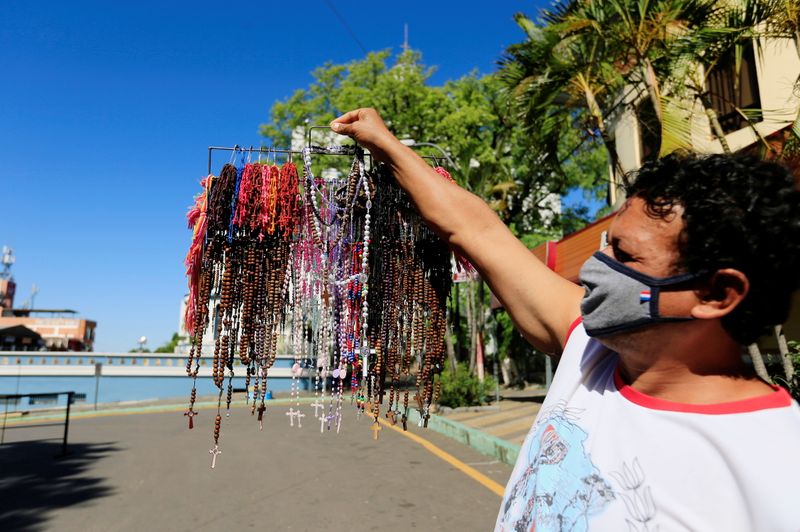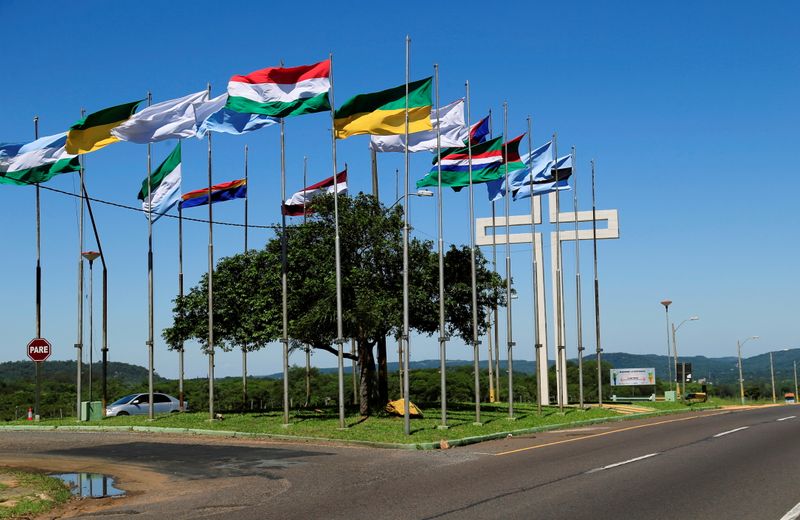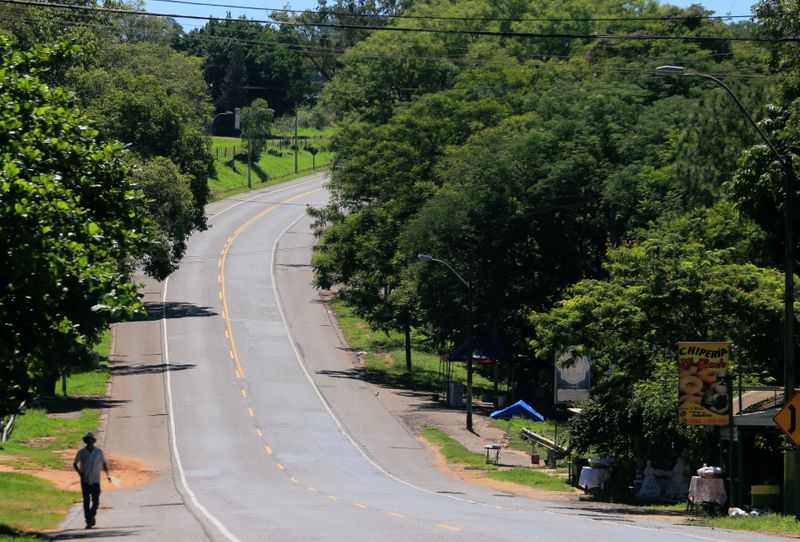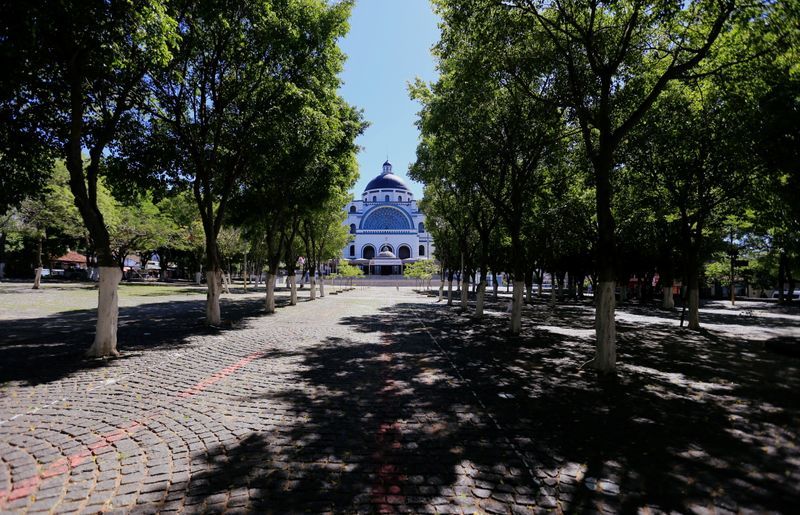ASUNCION (Reuters) – The people of Paraguay will honor their patron saint this year online or in neighborhood parishes, as pandemic rules prevent an annual pilgrimage to a sacred cathedral for the first time in a century.
The sprawling white Caacupé Cathedral, surrounded by palm trees, is widely seen as the spiritual capital of the land-locked South American nation. For more than a century it has attracted nearly a million visitors annually around the holidays, culminating on Dec. 8.
But this year officials in Paraguay have largely restricted access to Caacupé, 50 kilometers (30 miles) outside the capital Asuncion, to stave off a spike in contagions.
Paraguay, widely praised for quickly and decisively containing the virus while other Latin American countries saw uncontrolled outbreaks, has nonetheless seen a rebound in cases in recent weeks, prompting authorities to tighten restrictions around the pilgrimage.
The Spanish Flu pandemic in 1918 was the last time the celebration, which honors the Virgin of Caacupé, had been called off, said researcher Fabian Chamorro. Even during political revolutions a few of the faithful managed to make the pilgrimage, he noted.
“Caacupé is a phenomenon that transcends religion,” Chamorro said. “There are people who go for fun and it is also a tourist event.”
The cathedral was surrounded by empty sidewalks and steps this week, as police blocked adjacent streets, a stark contrast to years past, when crowds overtook the city’s bountiful restaurants and shops.
“It’s frustrating. They could have allowed it to precede in moderation. I think it is too exaggerated,” said Ruth Valdez, a 21-year-old Paraguayan student who has often made the pilgrimage.
Paraguay registered 87,920 cases and 1,853 deaths linked to COVID-19 as of Sunday.
(Reporting by Daniela Desantis; Writing by Dave Sherwood; Editing by Richard Chang)

